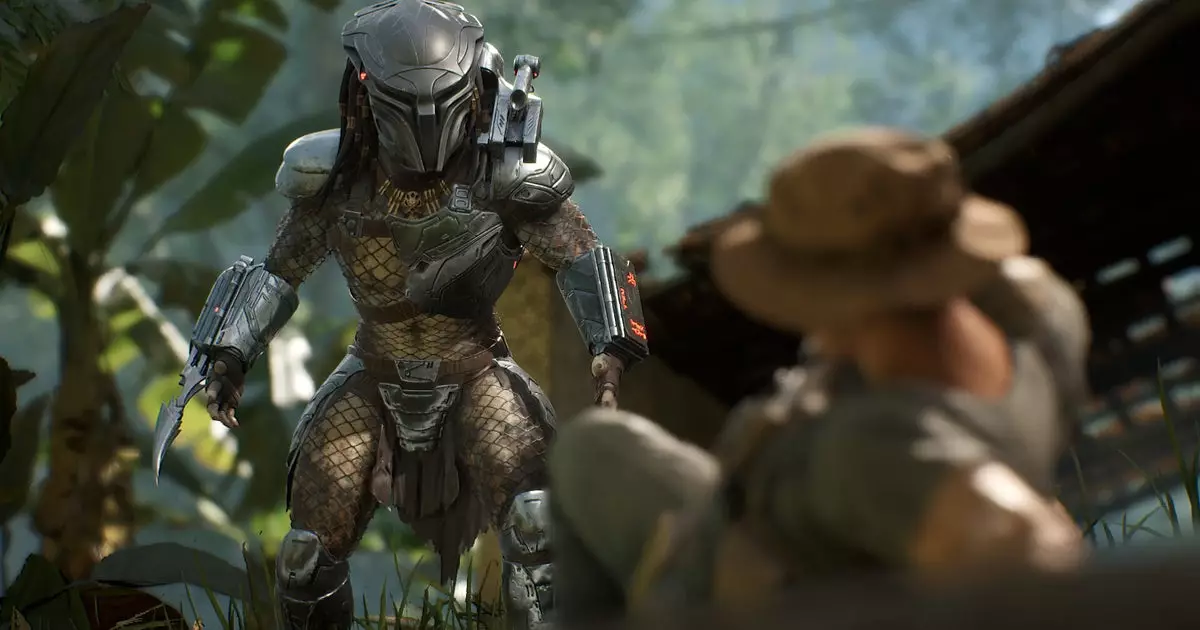The recent layoff announcement from IllFonic, the developers behind titles such as *Friday The 13th: The Game* and *Predator: Hunting Grounds*, serves as a stark reminder of the ongoing challenges faced by the gaming industry. This situation not only highlights company-specific difficulties but also underscores a broader crisis affecting developers across the sector. In this article, we will explore the implications of IllFonic’s layoffs, the fluctuating gaming market, and the shifting strategies that companies must adopt to survive.
In a statement shared on LinkedIn, IllFonic CEO Charles Brunghardt conveyed the somber reality of needing to reduce staff due to challenges posed by “the state of the industry.” Such language reflects a growing trend where gaming companies, large and small, must navigate an increasingly precarious economic landscape. With layoffs reaching approximately 14,000 in 2024 alone, it’s evident that the tide of job losses is making waves throughout the gaming world. This can perhaps be attributed to various factors including market saturation, increased competition, and the expiration of key intellectual property licenses.
IllFonic’s decision to lay off workers, without specifying the number or which teams were affected, also speaks to a culture of communication that can’t afford transparency amid uncertain times. As employees and stakeholders face the music, the lack of specificity leaves many wondering about the future direction of the company itself.
One likely contributing factor to IllFonic’s layoffs is the expiration of the license for *Friday The 13th*. This developed into a significant blow not only to the company’s portfolio but also to its financial stability. When a game cannot be sold due to licensing constraints, it not only stops income flow but could also impact critical development resources and ongoing projects. IllFonic’s continuing struggle with games like *Ghostbusters: Spirits Unleashed* and *Killer Klowns from Outer Space: The Game* reflects the risk heavier licensing models pose. The limited audience for niche horror brands complicates their marketing and engagement strategies, leading to underperformance in what are supposed to be major game releases.
The gaming industry has often relied on established licenses to drive sales, and while this can yield initial popularity, the long-term sustainability becomes questionable when support from the original franchise wanes or when the game struggles to establish its own identity in a crowded marketplace.
Through their attempts to create engaging horror games, IllFonic has expressed a desire to cater to a broader demographic as opposed to just hardcore gamers. By balancing accessibility with engaging mechanics, they hoped to catch the interest of casual players who may not typically gravitate towards video games. However, this balancing act is perilous and may also reflect a fundamental misunderstanding of player motivations. The strategy of attracting both hardcore aficionados and casual gamers could dilute the experiences both groups desire.
Moreover, as the industry recalibrates itself, developers and companies alike must reassess their positions within the gaming ecosystem. The rise of live-service games, rapid technological advancements, and shifting gamer preferences necessitate a more fluid and adaptable approach to game design and business models. Companies like IllFonic need to learn from past experiences and be willing to innovate beyond the initial concept.
As IllFonic endeavors to realign with what they describe as a “refined strategy,” it remains uncertain what the future holds for the studio and its staff. The internal upheaval may foster innovation and new directions, but it could just as easily signal instability amid an unforgiving market environment. Other companies, like Ubisoft, have already begun to feel the effects of an evolving landscape, having recently undertook similar layoffs.
Ultimately, the current state of IllFonic reflects a broader reality of vulnerability in the gaming industry. As many developers search for new opportunities in the wake of layoffs, the necessity for resilience and adaptability remains paramount. In navigating such tumultuous waters, both companies and employees must have the ingenuity and foresight to forge new paths and redefine what success looks like in a restructured industry.

